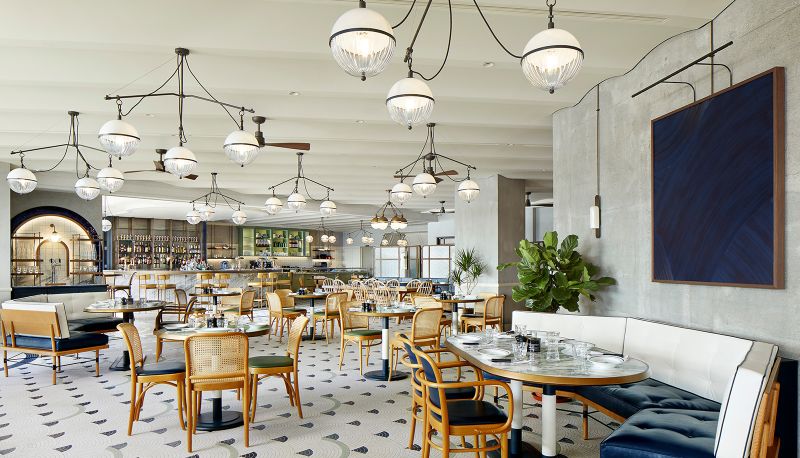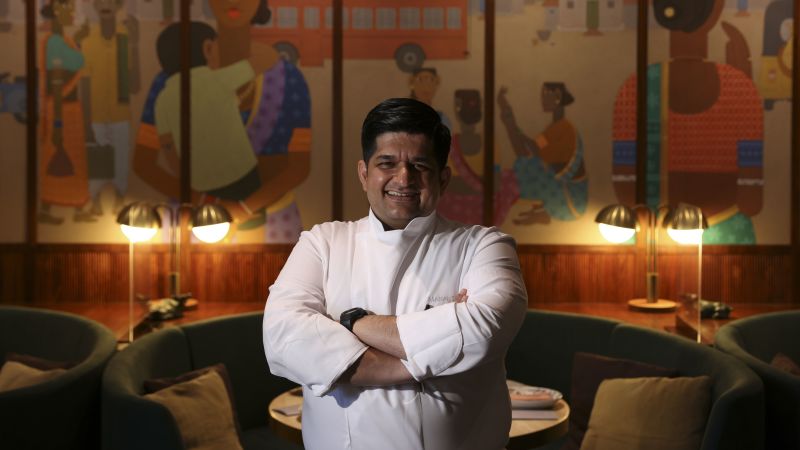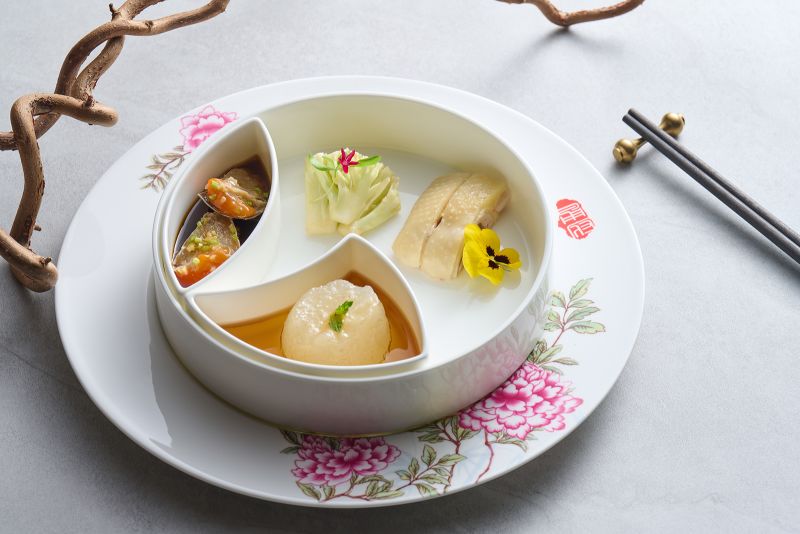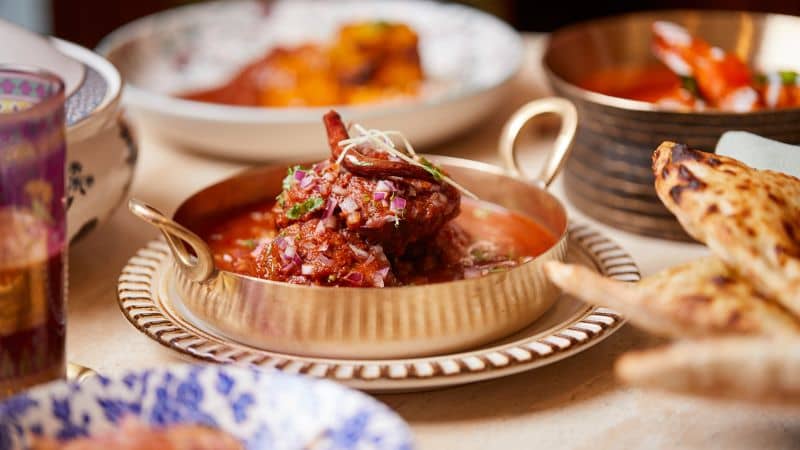WASHINGTON, DC – APRIL 23: Members of the Supreme Court pose for a group photo at the Supreme Court in Washington, DC on April 23, 2021. Seated from left: Associate Justice Samuel
Digital Brief: Dec. 3, 2022 (AM)
Digital Brief: Dec. 3, 2022 (AM)
02:59
BRICK, N.J. (CBS) — Two people in Ocean County were arrested for animal cruelty and child endangerment Friday night, police say. Officers responded to a house in Ocean County following an anonymous complaint about a possible puppy mill.
When officers arrived they rescued nearly 200 animals, but for at least two dogs help was too late.
Police in Brick, New Jersey were at a home on Arrowhead Park Drive on Friday at 7:30 p.m. where they were met by the residents, 49-year-old Aimee Lonczak and 58-year-old Michele Nycz.
During the initial interview, officers could smell a strong animal odor coming from the house. They were permitted to enter the home where they were met by an abundance of neglected animals.
Inside, there were dogs and cats in crates stacked up on top of each other.
Police called for assistance from the hazmat team as the house was covered in feces. That is also when they found two dead dogs inside the house.
It took rescuers about 10 hours to remove all animals who were sent to a number of area shelters.
A responding veterinarian also sent at least eight animals for emergency veterinary care.
Further investigation also revealed that a 16-year-old teenager, Lonczak’s daughter, was living in the house. Lonczak and Nycz were arrested for animal cruelty and child endangerment.
The investigation is ongoing and additional charges may be filed.
Don't Miss
CNN — For years, Alli Nansolo grappled with whether to cut his son’s dreadlocks or not. Although it is not
CNN — Hong Kong is widely considered one of the most challenging cities in the world to operate a restaurant
ATLANTA, Ga. (Atlanta News First) – Thomaston police are investigating after thieves allegedly stole two Ford Mustang cars totaling nearly

CNN
—
For years, Alli Nansolo grappled with whether to cut his son’s dreadlocks or not. Although it is not a legal requirement in Malawi, an unwritten policy enforced across government schools meant his son was being denied admission because of his hair.
Nansolo’s could not pay for private education for his son Ishmael from his modest dressmaking income and cutting his hair, an important symbol of their Rastafari religion, was inconceivable to him.
“Rastafari is a spiritual way of life. Keeping dreadlocks is like we are committing ourselves to a vow before the most high creator that we will serve him in our life without denying his laws or commandments,” Nansolo told CNN.
The 48-year-old makes between 200,000 to 300,000 Malawian Kwacha (around $194 to $291) monthly, while his wife Empress supplements the family’s income by selling secondhand clothes.
“I felt oppressed,” Nansolo said as he recalled the staff of a state-run secondary school in Zomba, southern Malawi. refusing to register Ishmael because of his hair.
Nansolo said he contacted an officer at the Ministry of Education who advised him to cut his son’s hair so that he could go to school.
Nansolo found himself caught up in the discriminatory policies of Malawian public schools and decided to take legal action against the Ministry of Education, along with a group of parents.
“I went to the Women Lawyers Association of Malawi to ask for help. The association accepted and we went to court in November 2017,” he said.
For three years, Ishmael, then 15, would remain out of school as the court case dragged on.
Then, in 2020, the Malawi High Court placed an interim order compelling public schools to enroll Ishmael and other Rastafari children until a final ruling was reached.
It was a legal victory that marked a significant milestone for the estimated 15,000 Rastafarian community in Malawi, according to Nansolo, who is also a community elder.
However, the temporary relief did not address the broader issue of discrimination that around 1,200 affected students face, their lawyer Chikondi Chijozi told CNN.
“We saw a number of Rastafari children being admitted into government schools but there were still reported cases of children of [the] Rastafari community being denied admission into government schools, and their parents were forced to take the court injunction to the school to compel them to admit them,” Chijozi said.
‘Free’ at last, but challenges remain
After a six-year legal challenge, the Malawian High Court delivered a landmark ruling on May 8.
The court ruled that it was unlawful to require learners, including Rastafarian kids, to cut their hair before they are enrolled into public schools.
The ruling came into immediate effect but the government has until June 30 to issue a nationwide statement mandating acceptance of all dreadlocked children into school.
Chijoki told CNN: “We got a judgment from the court which essentially upheld the rights of the Rastafari children and abolished the policy that requires all learners, including Rastafari children, to cut off their dreadlocks for them to be admitted into government schools.”
Nansolo expressed his community’s jubilation that their children could now finally continue their education.
“The judgment means that we are now free because most of us in [the] Rastafarian community don’t earn much, so we couldn’t manage to send our children to private schools,” Nansolo said.
“We are happy seeing that our children will now be going to public schools without being sent back or denied their right to education.”
CNN has contacted the education ministry for comment on the ruling.
Despite this victory, Malawi’s Rastafarian community still faces numerous challenges. Unemployment, poverty, and corporate discrimination persistently plague the community. Data on the community is hard to come by but the US State Department says around 5.6 percent of Malawi’s nearly 21 million population is formed of other religions including Hindus, Baha’is, Rastafarians, Jews, and Sikhs.
“Most of us rely on business to survive. Lack of jobs is a big challenge for the Rastafarian community because those in offices are reluctant to employ Rastas,” Nansolo said.
“The corporate world feels that being Rastafari is associated with criminality, but we are not like that.”
Don't Miss
WOOSTER, Ohio — For Rita Dush, Christmas trees hold many meanings. “Stewardship of the land, beauty, and happiness for families,”
Digital Brief: Dec. 3, 2022 (AM) Digital Brief: Dec. 3, 2022 (AM) 02:59 BRICK, N.J. (CBS) — Two people in
CNN — Before music streaming was popular, Nigerian group P-Square was already among the pioneers of the sound now dubbed
CNN
—
Hong Kong is widely considered one of the most challenging cities in the world to operate a restaurant – a roiling cauldron of changing tastes, cleaver-sharp competition and unsavory economics.
Right at the heart of its culinary world, with connections to at least half of its hottest tables, is publicist Geoffrey Wu.
Wu and his 10-year-old consultancy firm The Forks and Spoons work with some of the most decorated restaurants and bars in town, such as the two-Michelin starred TATE Dining Room and Ando, one of the most sought-after reservations in town.

“I wouldn’t say we’re better at our job than other people. I’d say we’re different,” he tells CNN Travel in The Baker and The Bottleman, a new casual bakery and natural wine bar by celebrity British chef Simon Rogan, where he’s agreed to spill some of the secrets of Hong Kong’s dining scene.
After being expelled from the University of Science and Technology in Hong Kong for “skipping too many classes to play cards at McDonald’s,” Wu joined Amber, the famed French restaurant under the helm of Richard Ekkebus, as operations staff in 2005.
Over the next few years he took on various marketing roles for different companies – but always found himself back in the food and beverage industry. In 2012, he opened his F&B consultancy firm.
Wu isn’t your typical food and beverage publicist. He isn’t congenial. He’s known for occasionally yelling at clients for making a mistake, or members of the media he feels haven’t done their research.
“I am not afraid to speak up – people know that for sure. Sometimes you need a consultant who is straightforward about things that must be fixed. We aren’t here to massage your ego. We are here for the results. We are here to win,” says Wu, sounding more like a football coach than a PR professional.
“If I wanted to please everyone, I’d go sell ice cream. Luckily, most of my clients understand.”
Among these clients is Yenn Wong, founder and chief executive officer of JIA, a restaurant group behind popular award-winning Hong Kong eateries like Mono and Duddell’s.
“The Forks and Spoons understand and personalize the needs of each concept and is always staying very current with the relevant strategies to ensure we as clients get the most publicity to our target audience, which ultimately delivers positive revenue growth,” Wong tells CNN Travel.
‘The most cutthroat F&B market in the world’

One of the important duties for a F&B publicist is to be physically present at a restaurant, according to Wu. He is either tinkering with menus, sampling new dishes or simply meeting with clients.
It could be anything from translating the restaurant’s a la carte menu from Chinese into English to working with chefs on choosing dishes for a tasting menu, “so you can see what’s happening and let the staff know that you care,” says Wu.
For instance, later that day, he says he’s having a trial lunch at Bluhouse, a new casual Italian dining concept at the Rosewood Hotel in Kowloon.
“At a tasting, we’ll look at everything – taste, presentation and temperature of the food. We also look at furniture, operation flow, pricing, etc.,” he says. “No new restaurant is ever perfect, but let’s try to minimize the error.
“We have only worked with clients in Asia – Hong Kong, Macao, Maldives, etc – but I really believe that Hong Kong is the most cutthroat food and beverage market in the world.”
His claim isn’t baseless.
Getting the opening right is essential in Hong Kong due to its competitiveness.
The city is frequently named as the world’s most expensive rental location. And Hong Kong residents are some of – if not the – biggest spenders on dining out, especially pre-Covid. Food imports are extremely expensive.
According to a recent government survey, Hong Kong households spent an average of HKD60,539 (or US$7,761) on meals out and takeaway food in the year of 2019 to 2020 – Hong Kong suffered from half a year of social unrest in 2019 before the outbreak of Covid in 2020
That was about double what New York-area household spent on average on food away from home during the same year.
“It’s such a condensed market,” says Wu.
“People always talk. Hong Kong customers are also very knowledgeable. If you don’t get it right from the get-go, you have to revamp many things. The question is – will the customers give you a second chance? There are so many choices that chances are they’d go somewhere else.
“So to build a successful restaurant, it’s important to make sure the opening is a strong one. With good word of mouth then businesses will come. It’s that simple.”
Case in point: Bluhouse. It opened in June and dinner reservations are full through October and November at the time of the writing.
Hong Kong’s F&B industry has evolved rapidly in the last decade, thanks in part to the arrival of Michelin Guide in 2009 as well as the rise of social media and the local food community.
Chefs in Hong Kong have experienced a shift in their roles.
“Some 20 years ago, chefs mostly just cooked and served food,” says Wu.
“Now in 2022, there is also this thing called relationship building. Chefs have to show their faces. They have to touch the tables and to take pictures with guests. The job of a chef is much bigger than before. It all goes back to a need for human connection. Customers, media, influencers, bloggers – everyone wants to have a human connection.”
And it just makes good business sense – guests are more likely to return to a restaurant where they have established a relationship with the chef.
The problem, of course, is that chatting with diners doesn’t come naturally to all chefs. That’s where Wu comes in.
“We just encourage and encourage and encourage them,” he says.
He cites Manav Tuli of modern Indian restaurant Chaat – which is also located at the Rosewood – as a success story. Chaat opened in 2020 and won its first Michelin star two years later.

Unique dishes like Tuli’s showstopping tandoori lobster – Indian food with a Hong Kong seafood twist – and a team of knowledgeable staff which communicates the stories of the food beautifully are some of the reasons Chaat is one of Hong Kong’s hardest to book restaurants.
Tables are released two months in advance and swept up in minutes.
But the biggest star of Chaat is Tuli, considered one of the city’s most beloved culinary figures right now.
“When he arrived two years ago, he didn’t know the landscape or culture of Hong Kong,” said Wu. “He is a quiet person but we align in a certain way as we both have a drive. For him, moving his family to Hong Kong with him, he wants to make this a success. So we have been working very closely since day one on that,” said Wu.
He encouraged Tuli to meet the guests and fellow chefs, joining him at events and meals as the chef built a name for himself.

On his days off, Wu organizes lunches for media, including revered industry critics, and chefs he works with or may work with in the future.
These often take place at venues Wu doesn’t work for, from Hop Sze, a no-frills Cantonese diner that has a six-month wait list, to the Forum Restaurant, a Chinese joint with three Michelin stars.
“I worked til 4 a.m [this morning]. I only joined because Geoffrey Wu arranged this lunch,” one food critic tells CNN Travel as he enters the private dining room inside Forum.
The menu of the day includes all kinds of dishes – from street food-style rice rolls to classic Cantonese sweet and sour pork and the restaurant’s famous braised abalone.
As with most lunches with Wu, there’s also an off-menu surprise.
Adam Wong, the executive chef, and CK Poon, the general manager, come in with a pushcart near the end of the meal.
“We are thinking of adding this to the next menu update,” says Poon as he caramelizes sugar for the candied apple fritter (ba si apple), a Northern Chinese-style dessert, on-site.”It’s the first time we’re doing this – so let us know what you think.”
The five-hour lunch wraps up with industry gossip over bottles of cognac.
But Wu is never not working.
He punctuates gatherings with potential collaboration ideas (Tuli and Wong exchanged ideas that day on a hookup between the two restaurants), and fills in moments of silence with jokes to keep the meal entertaining.
“I always say that I’m the chief entertainment officer,” says Wu. “Building relationships takes time. Cold-calling and sending press releases aren’t building a relationship.”

At the end of the day, connections won’t get you far if the food isn’t good or the restaurant refuses to evolve.
“Flavor doesn’t lie,” says Wu. “But everything – restaurants, bars, chefs – has a shelf life. It’s impossible to stay number one forever. You need to keep coming up with new ideas to continue to elevate the restaurant.”
It could be doing more tableside services, educating guests about the dishes, or simply adding a pre-dessert bite that cleanses the palate, he says.
One of Wu’s latest tasks is to edit the menu at one of his new clients, Yong Fu, a Michelin-starred restaurant that specializes in high-end cuisine from China’s east coast Ningbo region.
He’d like to trim down the original one-inch-thick book and has created a tasting menu to offer a more curated ordering experience.

In Hong Kong, Ningbo cuisine is often confused with Shanghai cuisine. The tasting menu includes dishes that diners may not know enough about to order – a “sticky” boiled wax gourd and yellow croaker fish in sour broth, for example – that amplify the trinity of Ningbo cuisine’s star flavors: “savory, umami and sticky.”
Yu Qiong, Yong Fu’s manager, is there to offer an in-depth explanation on each of the dishes.
“These are some of the things that will enrich the whole dining experience,” says Wu. He compares marketing restaurants with running: “Keep refining. Keep pushing. My belief is, just don’t stop until you are at the finishing line.”
It’s an apt metaphor. The avid runner wakes up at 5:45 a.m. on most days to fit in exercise.
“I enjoy Hong Kong on quiet mornings when the city hasn’t woken up yet. When you run, you see a lot of things and think about a lot of things,” says Wu.
As for what was on his mind that particular morning?
“I was thinking about our interview. I was thinking about not swearing. I did well – I only swore once.”
Don't Miss
Digital Brief: Dec. 3, 2022 (AM) Digital Brief: Dec. 3, 2022 (AM) 02:59 BRICK, N.J. (CBS) — Two people in
CNN — For years, Alli Nansolo grappled with whether to cut his son’s dreadlocks or not. Although it is not
To tackle Thailand’s mounting trash problem, one company is turning to the country’s plant life. Universal Biopack makes packaging that
ATLANTA, Ga. (Atlanta News First) – Thomaston police are investigating after thieves allegedly stole two Ford Mustang cars totaling nearly $200,000 from the Southern Ford of Thomaston dealership.
A Ford Mustang GT500 Heritage and a blue Ford Mustang GT500 were both taken overnight Friday.
“It’s really a special car, we are one of the lucky dealers that have it,” General Manager Chip Richardson said. “The Heritage was a numbered car; less than a thousand of them were built and everything was certified on it.”
According to Thomaston Police, the thieves broke into the showroom and took not only the cars but the keys to most of the cars in the lot.
“I don’t think this was someone coming to do a joyride, they knew what they were looking for,” Chief Mike Richardson said. “And I don’t think these are going to be chopped up anywhere, they’re heading somewhere.”
The thieves disabled the security cameras, according to police.
For those that run the dealership, it’s incredibly disappointing.
“We’re a small country town and normally nothing happens,” Chip Richardson said.
Investigators are asking anyone with information to call Thomaston Police.
There is a $1,000 reward for any information that leads to an arrest.
Copyright 2022 WANF. All rights reserved.
Don't Miss
Digital Brief: Dec. 3, 2022 (AM) Digital Brief: Dec. 3, 2022 (AM) 02:59 BRICK, N.J. (CBS) — Two people in
CNN — For years, Alli Nansolo grappled with whether to cut his son’s dreadlocks or not. Although it is not
CNN — Hong Kong is widely considered one of the most challenging cities in the world to operate a restaurant
This NASA astronaut voted from space
Story highlights
Shane Kimbrough is a NASA astronaut
He voted in the 2016 election
CNN
—
From infinity and beyond, he found a way to vote.
Shane Kimbrough, a NASA astronaut currently living on board the International Space Station, filed his ballot in Tuesday’s presidential election, according to a Tumblr post by NASA.
NASA told Yahoo News that Kimbrough filed his ballot in the 2016 election from the space station sometime over the past few days.
For astronauts who will be in space on Election Day, the voting process starts a year before launch. At that time, they are able to select the elections in which they want to participate.
Then, six months before the election, astronauts are provided with the form “Voter Registration and Absentee Ballot Request – Federal Post Card Application.”

NASA astronaut David Wolf was the first American to vote in space while on the Russian Mir Space Station in a 1997 local election, according to NPR.
Don't Miss
Editor’s Note: Sign up to CNN Travel’s free nine-part Unlocking Italy newsletter for insider intel on Italy’s best loved destinations
The incredible true story of the time an astronaut played golf on the moon Over 50 years ago, Alan B.
Digital Brief: Dec. 3, 2022 (AM) Digital Brief: Dec. 3, 2022 (AM) 02:59 BRICK, N.J. (CBS) — Two people in

Atlético Madrid midfielder’s comeback from brain cancer and mother’s paralysis
Atlético Madrid midfielder Virginia Torrecilla overcame brain cancer and her mother’s tragic paralysis in a car accident to step back onto the pitch and now she has a message of positivity for everyone.
Don't Miss
CNN — Paul Templer was living his best life. He was 28 and conducting tours in his native Zimbabwe, with
CNN — Coco Gauff was ruthless and totally dominant in her US Open quarterfinal against Jelena Ostapenko, dropping just two
Golfer Danielle Kang set for comeback Source link
Don't Miss
Digital Brief: Dec. 3, 2022 (AM) Digital Brief: Dec. 3, 2022 (AM) 02:59 BRICK, N.J. (CBS) — Two people in
CNN — For years, Alli Nansolo grappled with whether to cut his son’s dreadlocks or not. Although it is not
CNN — Hong Kong is widely considered one of the most challenging cities in the world to operate a restaurant

WASHINGTON, DC – APRIL 23: Members of the Supreme Court pose for a group photo at the Supreme Court in Washington, DC on April 23, 2021. Seated from left: Associate Justice Samuel Alito, Associate Justice Clarence Thomas, Chief Justice John Roberts, Associate Justice Stephen Breyer and Associate Justice Sonia Sotomayor, Standing from left: Associate Justice Brett Kavanaugh, Associate Justice Elena Kagan, Associate Justice Neil Gorsuch and Associate Justice Amy Coney Barrett. (Photo by Erin Schaff/Pool/Getty Images)
Don't Miss
Digital Brief: Dec. 3, 2022 (AM) Digital Brief: Dec. 3, 2022 (AM) 02:59 BRICK, N.J. (CBS) — Two people in
CNN — For years, Alli Nansolo grappled with whether to cut his son’s dreadlocks or not. Although it is not
CNN — Hong Kong is widely considered one of the most challenging cities in the world to operate a restaurant




















